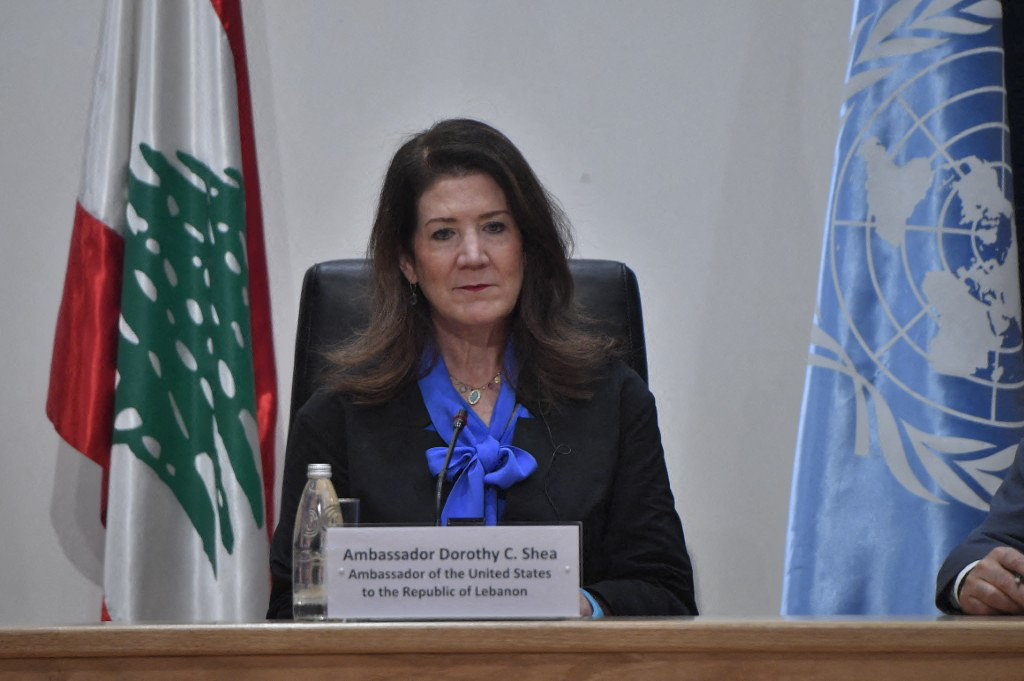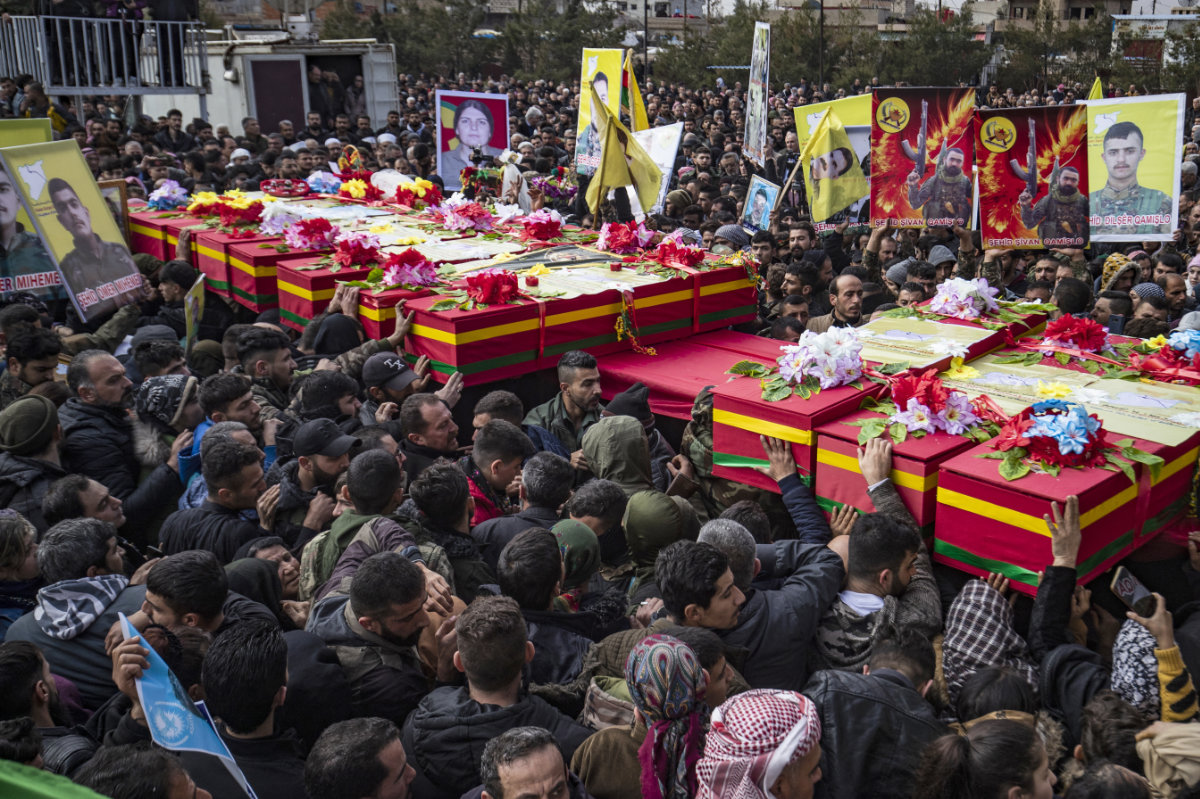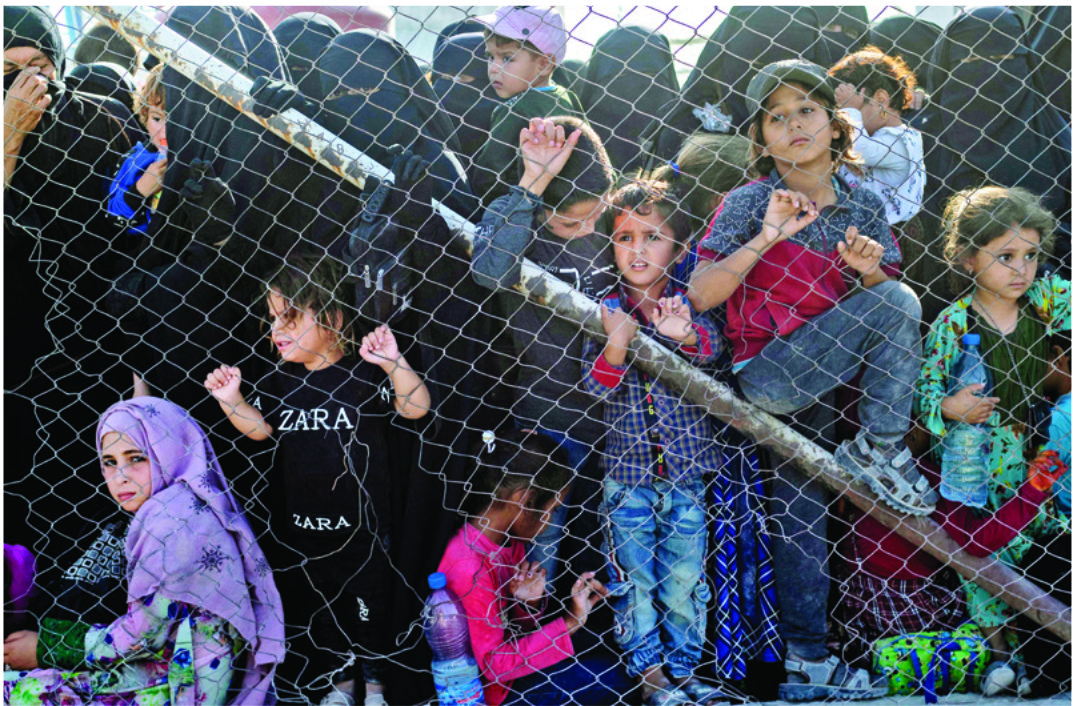CHICAGO: Although President Bashar Assad continues to survive the civil war that has gripped Syria since 2011, he controls only 60 percent of the country and his regime’s largest source of revenue is now drug trafficking, according to an expert on the nation’s geopolitical history.
Charles Lister, a senior fellow and director of the Syria and Countering Terrorism and Extremism programs at the Middle East Institute, told the Ray Hanania Radio Show on Wednesday that for the past several years the Syrian regime has turned to the distribution of Captagon, a methamphetamine-based drug often referred to as “the poor man’s cocaine,” as its main source of export revenue.
He described Syria as a “narco-state” that in 2021 generated more than $30 billion from the illegal distribution of the drug, mainly in the Gulf region. This compares with only $800 million a year from legitimate exports, he added.
“As a result of the crisis in Syria, and the fact that it has sustained for so long, the Syrian regime has now become a narco-state of global significance, an issue that almost never reaches our TV screens and our newspapers,” said Lister.
“But last year, 2021, the Syrian regime, in a series of factories across the country run mostly by the (Syrian Army’s) 4th (Armored) Division, which is run by Bashar Assad’s brother, Maher, exported roughly $30 billion of methamphetamine, called Captagon, mostly around the Middle East. $30 billion.
“To put that number into perspective, the legal exports of Syria that same year were worth $800 million. So the drug industry, an illegal drug industry run by the regime, is now literally the only element of importance of the Syrian economy.
“This is a narco-state in the heart of the Middle East exporting drugs mostly to the Gulf, that has enormous significance for regional stability. The Europeans are beginning to get worried about it reaching their shores. Several ports in Africa have seized Syrian-made Captagon over the past couple of years.”
Just this week, Saudi authorities seized narcotics with a street value of up to $1 billion and arrested eight expatriates in what is believed to be the Kingdom’s largest-known smuggling attempt and biggest-ever drug bust.
Officers found 47 million amphetamine pills hidden in a shipment of flour during a raid on a warehouse in Riyadh, the Saudi Press Agency reported. The drugs have an estimated street value of between $470 million and more than $1 billion, based on figures cited in the International Addiction Review journal.
Six Syrians and two Pakistanis were arrested, Maj. Mohammed Al-Najidi, a spokesperson for the Saudi Narcotics Control, told the SPA.
Syria is effectively partitioned and controlled by several major geopolitical powers. Russia and the Syrian regime controls about 60 percent of the country, including the central spine and western regions. The US and its partners control about 30 percent of the country in north east and east. Turkey and its opposition partners occupy between 9 and 12 percent of the north and northwest of the country.
One of the biggest benefactors of the Syrian crisis is Iran, which Lister said uses areas controlled by the Syrian regime as distribution points for weapons Tehran supplies to its partner militias that target Western and Israeli forces.
“Iran is a whole different story,” he explained. “Iran is not calling all of the shots in Syria but ever since the 1979 revolution it has sought to establish this channel of influence from Tehran all the way to the Mediterranean, through to Israel and Palestine. And that, unquestionably, is what they have managed to achieve.
“In Syria, that is arguably the most strategic kind of jewel in the crown for this Iranian regional strategy. And that is precisely why we see Israel conducting these quite significant series of air strikes over recent years, targeting anything from ballistic missiles, precision-guidance technology and air-defense systems that Iran has flown in, often using its state aircraft carriers, into Damascus International Airport.
“And they have sought to truck those across the border into Lebanon. Or station them in Syria, pointed directly at Israel. For Iran, it is of absolutely enormous significance and they have arguably achieved what they needed to.”
The complex international entanglements in Syria, including the Iranian and Russian presence, means there is no immediate prospect of an end to a conflict, Lister said, in which there have been dramatic flareups, such as when Daesh struck American targets and the US responded by sending in war planes.
“Syria’s crisis is a long way from over,” he explained. “There are multiple conflicts going on in the country, not just one. And all of the root causes that gave way to the uprising and crisis in 2011, all those root causes are still there today. Most of those root causes are worse today than they were in 2011.
“Over the years, Syria’s crisis deteriorated and escalated to such an extent, and also became so complicated, that various international actors have intervened in pursuit of their own interests over the years and I think, as a result, really Syria is best described now as a geopolitical conflict. There are the Turks, there are the Iranians, the Russians, of course the Syrian government, the Israelis, the global coalition against ISIS,” he added, using another term for the terrorist group Daesh.
“And within that there is a whole variety of different terrorist organizations, as well as the opposition, the Kurds, and the SDF (Syrian Democratic Forces) that have backed and been our partners in the fight against ISIS. It has been an incredibly complicated crisis. At its core, it is a crisis and there are lots of layers to that.”
During the past two years, Israel has conducted at least 200 sets of air strikes on territory held by the Syrian regime, Lister said.
The regional divisions in the country have resulted in a de facto stalemate of violence and simmering tensions, he added. If there were not so many major geopolitical players involved, he suggested, the conflict might have been resolved long ago.
“If there was one (major) player, we would have seen Syria’s crisis resolved, one way or the other,” Lister said. “We would have seen it resolved through a victory over one side or the other, or through some kind of negotiated settlement.
“In reality, there is no player that holds all of the cards and that is precisely why, more than 11 years later, this crisis is still going on and all of those roots causes haven’t been resolved.
“Ultimately, I think the Russians have probably changed the dynamic imbalance in Syria the most of everyone. When they intervened in 2015, the regime was on the verge of collapse and implosion and the Russians unquestionably reversed that and put the regime back into a position of advantage. But they have clearly failed to ‘win’ the conflict in the years that have followed and that is why we are in this geopolitical stalemate.”
Lister appeared on The Ray Hanania Radio Show on Wednesday, Aug. 31, 2022. It is broadcast on the US Arab Radio Network in Detroit and Washington D.C. and rebroadcast in Chicago on Thursdays. You can listen to the entire radio show podcast by visiting ArabNews.com/rayradioshow or any major podcast provider.
You can listen to the radio show’s podcast by visiting ArabNews.com/rayradioshow.







































